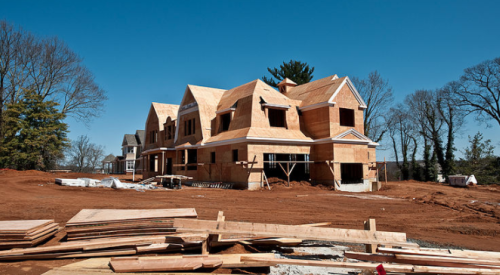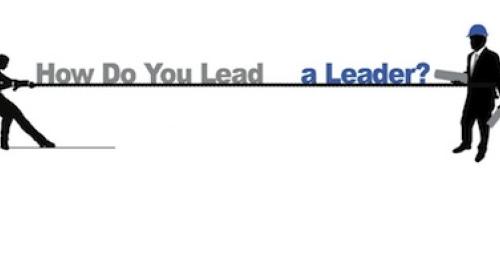| Contact Scott Sedam via e-mail at scott@TRUEN.com
|
Builders, as a rule, don’t like to be told they are doing something wrong, and I am about to not just tell but prove to 95% of you that you are doing something very wrong — something big. Although that’s aggravating enough, I’ll go on to make it worse. But let’s start with my first assertion. I’ll say it in straightforward terms: You are paying your salespeople all wrong.
Sounds like a bold statement. It’s really not. All it takes to prove this point is to describe a simple experiment. I should warn you, however, that this experiment should be conducted only by a trained professional. Do not try this at home (or at your office). Physical injury could result. I’ve done this experiment several times, and the outcome has been ugly. Consider yourself warned.
The experiment has three steps. Here’s what you do:
Step One: Get a roomful of sales manager/director/ vice president types together. Ask them to think of the worst community they have for sale. Yeah, that one, the project that was supposed to do 6 or 7 a month and is doing only 1.5 — and you’re giving it away. You can’t walk away from it, but you gotta get out of it. Have the participants in your experiment write the name of that community on a 3@5 card. Tell them to turn over the card.
Step Two: Give this same group a “happy thought.” Tell them you just gave them $10 million capital to buy land and start their own building company and that they can take one and only one of their salespeople with them. They want to take the very best, can-do, damn-the-torpedoes-sell-that-house person they have on staff. Have them write the salesperson’s name on the other side of the 3@5 card. Alongside that name, have them write the name of the community in which each “best salesperson” is currently selling.
Step Three: Tell them to turn the card back over and compare the names of the two communities listed — their most challenging site versus the site occupied by their No. 1 salesperson. If you want to make quick money, make this offer: Tell them you’ll give them $1,000 for each match if they’ll give you $100 for each nonmatch. Now listen to the chorus of moans and groans. I warned you, it wouldn’t be pretty.
I’ve done this with more than 100 sales directors and have gotten only one match. Is anyone surprised? Sure, I have heard all of the explanations and rationale over and over. “Hey, if I put Cheryl in that subdivision she’d leave in a heartbeat!” Of course she would, because of how you pay her. Most of our new home salespeople are somewhere between very heavily and 100% commissioned. Even if they receive a “salary,” more often than not this is a draw against commission.
The belief system is quite simple. It is based on an assumption that God put certain people on this planet who simply will not and cannot respond to anything other than a heavy-duty carrot-and-stick approach to life and new home sales. And if you don’t think there’s a big stick in this, try going two months without a paycheck.
The strange thing is, although this assumption is not inherently true, it becomes true. But note I said “becomes,” implying that something happened to create this phenomenon. People who are motivated primarily by carrot and stick do not start this way — we create them. And once we have created them, it is an enormous undertaking and takes extreme guts to undo it. Don’t believe me? Go into your sales meeting tomorrow and announce you are taking everyone off commission. See how they respond.
We’ll get back to that in a minute, but some of you are already ready to lynch me, so I’ll try one more example. Imagine you are a regional sales manager for a big equipment company such as Hewlett-Packard. And say you sank a bunch of capital into a new product line and it was bogging down. Or say the big Ford account was in danger of going to Texas Instruments. Would you assign the weakest salesperson you had to the account or your best? You know the answer. Even if it was doubtful, even if it was very high-risk, you’d send in your top dog to try to save it. Unless you were a builder, or at least most builders. You’d send in someone on the bubble, that person would fail, the prophecy would be fulfilled, and you’d lose the account, shake your head in disgust and hire someone else to sacrifice.
You might be wondering what would happen to our top gun from HP if even she failed to bring in the account. Simple. Her boss would have cut her a side deal to protect her for taking on the dirty job. I have met a couple of builders who have done this, but they are rare.
OK, so I told you I’d aggravate you, but how can I make it worse? It’s even worse because I’m not sure what the answer is. I just know that what we’re doing now isn’t working. I have met a lot of great salespeople, but I meet far too many who are detached and only marginally committed to their firms. They are reluctant to participate in training or process improvement teams. They spend too much time worrying about who gets the next “up” and where they stand in the latest sales contest. And who can blame them? They’ve been trained.
So what do you do? Let me give you a couple of alternative scenarios — maybe not complete answers, but let’s call them clues. In the past few months, I have encountered two builders, one in the North, one in the South, who break the sales compensation paradigm. Both pay substantial salaries that vary by duties, experience and success. One pays both individual and team bonuses based on profitability, and one pays each salesperson an amount per sale, but everybody in the department gets something for each sale.
The result? The two most cooperative, energized and team-focused sales groups I have seen. With virtually no infighting, they have excellent communication and great participation with the rest of the builder team. They work together for sales. They help each other. They train each other. They don’t battle about who gets which customer or who gets which day off. And they are two of the most productive sales forces I have seen. They sell homes. Overall costs of sales compensation? No more than that of the average, 100% commissioned builder sales force.
So challenge yourself with this: Are you paying your people in the most effective manner? You can’t say the way you do it now results in better sales because I have proof to the contrary. Look at all the other factors such as teamwork, participation, communication and training. How well are your salespeople integrated into the team? Is your way really getting you what you want?
I said that making a change in this area would take guts. Try it and you’ll lose some salespeople, maybe even good ones. But if what we’re doing now isn’t working, maybe it’s time to take that chance.
Lessons Learned by Scott Sedam tells the stories of the home building industry. As only an industry veteran like he can, Scott examines our habits and practices with an eye to improving the craft and business of home building. Scott is the president and founder of TrueNorth Development, Inc.












